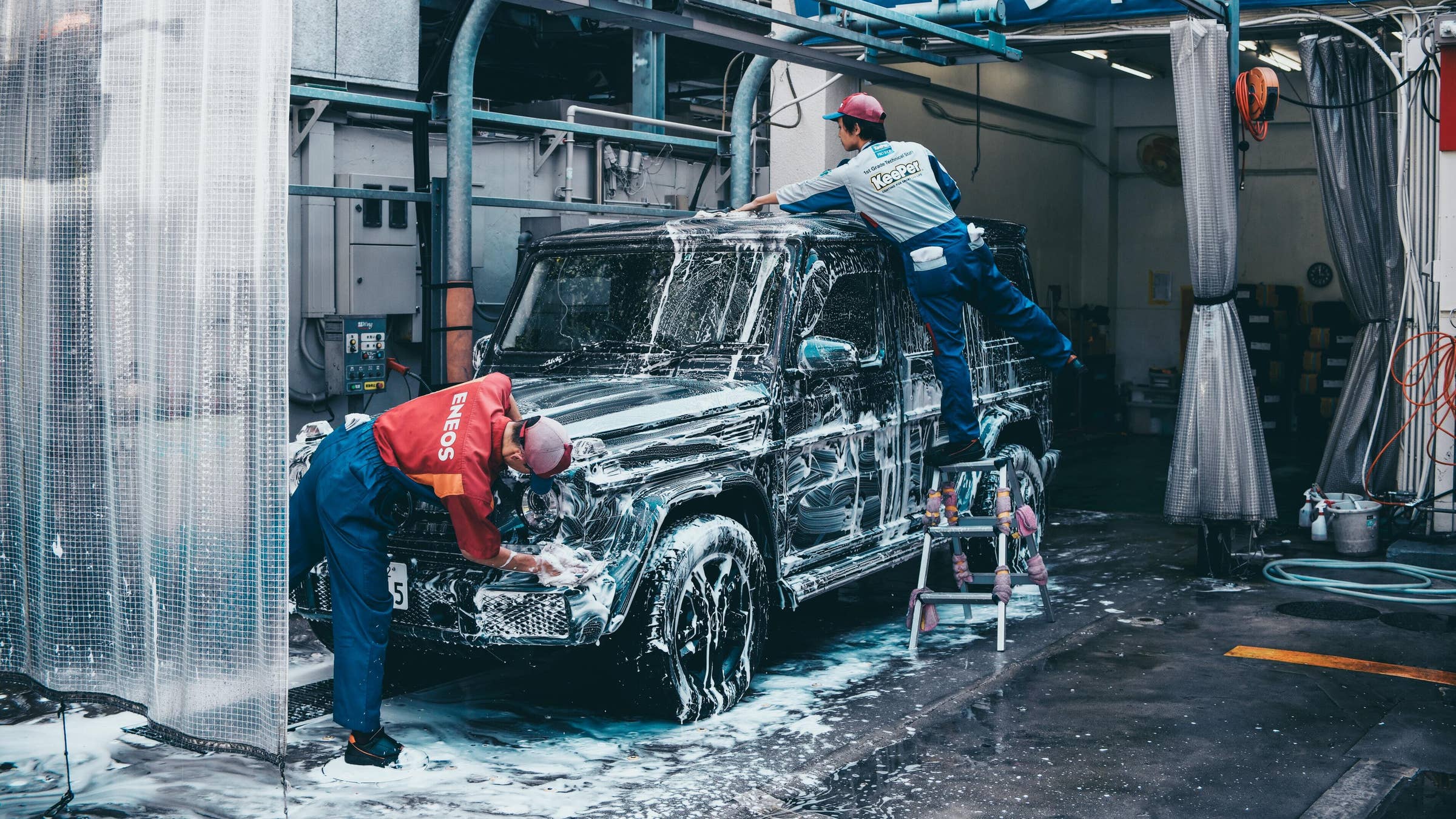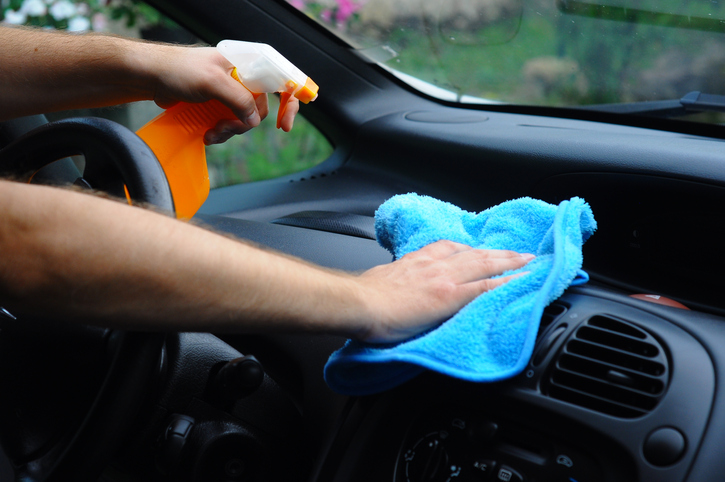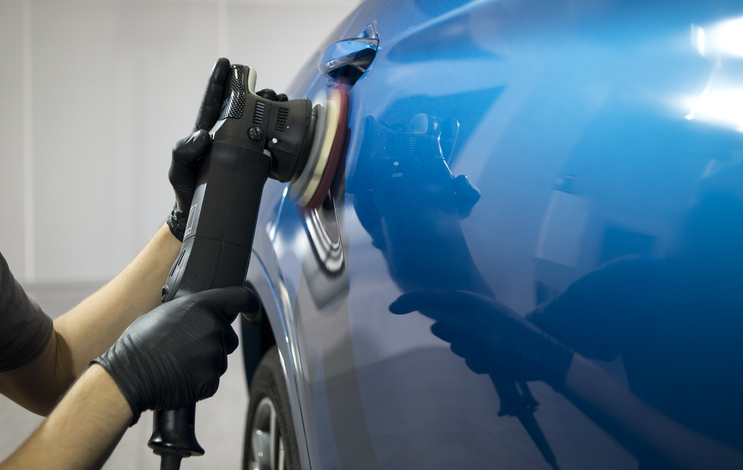How To Become A Car Detailer

The gleaming paint, spotless interior, and rejuvenated feel of a freshly detailed car are more than just aesthetics; they represent pride of ownership and meticulous care. As demand for vehicle upkeep rises, a career in auto detailing offers a lucrative pathway for those passionate about cars and committed to craftsmanship. But transforming a hobby into a profession requires more than just enthusiasm.
This article provides a comprehensive guide on how to become a successful car detailer, outlining essential skills, necessary training, startup costs, and strategies for building a thriving business. From mastering the art of paint correction to understanding the nuances of interior cleaning, we'll explore the steps needed to navigate this dynamic industry and achieve professional excellence. Whether you're considering a mobile operation or a fixed location, understanding the details is crucial.
Essential Skills and Knowledge
Becoming a proficient car detailer begins with acquiring a strong foundation of knowledge and skills. Understanding different types of paint, their vulnerabilities, and appropriate cleaning methods is paramount. You must also learn to operate specialized equipment, such as polishers, buffers, and steam cleaners, safely and effectively.
Attention to detail is non-negotiable. Spotting imperfections that others might miss is what separates a good detailer from a great one. Strong customer service skills are also essential, as building rapport and understanding client needs are crucial for building a loyal customer base.
Mastering Detailing Techniques
Paint correction is a core skill, involving the removal of scratches, swirl marks, and other imperfections from the vehicle's paint. This often involves a multi-stage process of compounding, polishing, and refining. Understanding the abrasiveness of different compounds and polishes, and their effect on various paint types, is essential.
Interior detailing requires a different set of skills, focusing on cleaning and protecting surfaces such as leather, vinyl, and fabric. Knowing how to remove stains, odors, and allergens while preserving the integrity of the materials is crucial. This requires expertise in using specialized cleaning products and equipment.
Furthermore, many detailers offer services like ceramic coatings or paint protection film (PPF) application. These services require specialized training and certification from reputable suppliers, which can significantly enhance your service offerings and earning potential.
Training and Certification
While formal education isn't mandatory, investing in professional training and certifications can significantly enhance your credibility and skillset. Several detailing academies and manufacturers offer comprehensive courses covering various aspects of car detailing. These courses provide hands-on experience, expert guidance, and industry-recognized certifications.
The International Detailing Association (IDA) offers a certification program that validates a detailer's knowledge and skills. Becoming an IDA Certified Detailer demonstrates a commitment to professionalism and adherence to industry best practices. This can provide a significant competitive advantage, especially when attracting discerning clients.
Manufacturers of detailing products often provide training on the proper use of their products and application techniques. These training sessions can be invaluable for staying up-to-date with the latest technologies and techniques. Taking advantage of these opportunities can help you differentiate yourself from the competition.
Startup Costs and Equipment
The initial investment for starting a car detailing business varies depending on the scope of your operation. A mobile detailing business typically requires less capital than a fixed location. However, both require a significant investment in equipment, supplies, and marketing.
Essential equipment includes a pressure washer, vacuum cleaner, buffer/polisher, steam cleaner, and various hand tools. You'll also need a wide range of detailing products, such as soaps, waxes, polishes, interior cleaners, and protectants. Investing in high-quality equipment and supplies is crucial for achieving professional results and ensuring customer satisfaction.
According to industry reports, startup costs for a mobile detailing business can range from $5,000 to $15,000, while a fixed location can cost upwards of $20,000 to $50,000. These costs include equipment, supplies, insurance, marketing materials, and initial operating expenses. Business plans should always be prepared.
Building Your Business
Marketing and networking are crucial for attracting clients and building a sustainable business. Develop a professional website showcasing your services and portfolio. Utilize social media platforms like Instagram and Facebook to share before-and-after photos of your work and engage with potential customers.
Offer competitive pricing and promotions to attract new clients. Consider offering package deals that bundle various detailing services. Building relationships with local car dealerships, body shops, and auto repair businesses can also provide a steady stream of referrals.
Exceptional customer service is key to building a loyal customer base. Always strive to exceed customer expectations and provide personalized service. Soliciting feedback and addressing any concerns promptly can help improve your services and build a positive reputation.
Mobile vs. Fixed Location
Choosing between a mobile and a fixed location depends on your budget, target market, and lifestyle preferences. Mobile detailing offers lower overhead costs and greater flexibility. However, it also requires traveling to clients' locations and dealing with varying weather conditions.
A fixed location provides a more professional environment and allows you to handle larger vehicles or offer more specialized services. However, it also requires higher overhead costs and a commitment to a specific location. Evaluate the pros and cons of each option carefully before making a decision.
Regardless of your chosen model, ensure you have the necessary permits and licenses to operate legally in your area. Compliance with local regulations is crucial for avoiding fines and maintaining a positive business reputation. Check with your local Small Business Administration (SBA) for relevant regulations.
The Future of Car Detailing
The car detailing industry is constantly evolving, driven by advancements in technology and changing consumer preferences. The rise of electric vehicles (EVs) and advanced driver-assistance systems (ADAS) is creating new opportunities for detailers to specialize in specific types of vehicles and technologies.
Environmental consciousness is also driving demand for eco-friendly detailing products and practices. Detailers who embrace sustainable practices can attract environmentally aware customers and differentiate themselves from the competition. Many customers are looking for biodegradable options.
By staying informed about industry trends, investing in ongoing training, and adapting to changing customer needs, car detailers can build successful and rewarding careers. Embracing innovation is key. The future is bright for detailers who are passionate about their craft and committed to excellence.


















